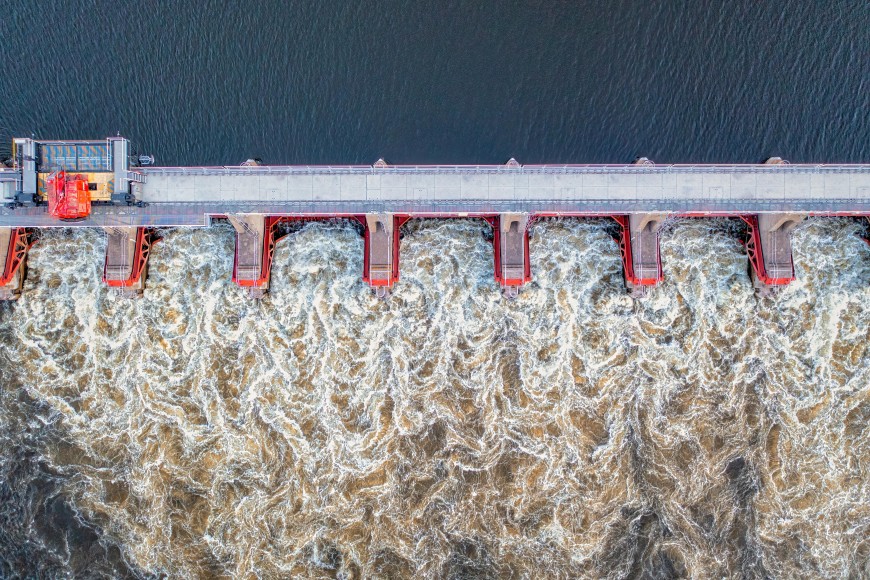Energy from rivers: TU professor emphasizes potential of hydropower for heat supply
Statement at the Science Media Center on the role of hydropower in the future energy system
2025/04/30 by SWa
In a recent statement for the Science Media Center (SMC) Germany, Prof. Dr.-Ing. Boris Lehmann, Head of the Department of Hydraulic Engineering and Hydraulics at TU Darmstadt, commented on the role of hydropower for an energy system of the future.

How can hydropower contribute not only to electricity but also to heat supply in the future? As part of a current topic briefing by the Science Media Center Germany, Prof. Dr.-Ing. habil. Boris Lehmann, Head of the Department of Hydraulic Engineering and Hydraulics at TU Darmstadt and member of the Energy and Environment research field, talks about the use of water heat pumps in flowing waters.
The background to this is the new coalition agreement between the CDU/CSU and SPD, in which hydropower is explicitly mentioned in the context of the energy transition for the first time in years. In his statement, Lehmann particularly emphasizes the potential of aquathermics – the use of heat from rivers and lakes with the help of water heat pumps.
Water is particularly efficient as a heat transfer medium as it can store significantly more energy than air, Lehmann explains in the interview. In view of the targets for decarbonizing the heat supply, he points out that this technology has so far been underused, but could be more widely used through further technical development and a clear regulatory framework.
"In particular, water heat pumps offer great potential for generating heat from rivers - efficiently, in a way that saves space and is comparatively environmentally friendly."
Prof. Dr.-Ing. habil. Boris Lehmann
He emphasizes that economically and ecologically sensible solutions can be implemented by combining river heat pumps with existing infrastructure, such as hydropower plants. The electricity generated can be used directly to operate the heat pumps. They can also be used in undeveloped stretches of water, but require particularly careful planning to protect the ecology.
Lehmann believes that the technology is basically ready for use and calls for more research, further development and implementation in practice.
The full statement and further assessments by experts from research and practice can be found in the current Science Media Center article:
“New coalition: Will more electricity and heat come from hydropower in future?”

